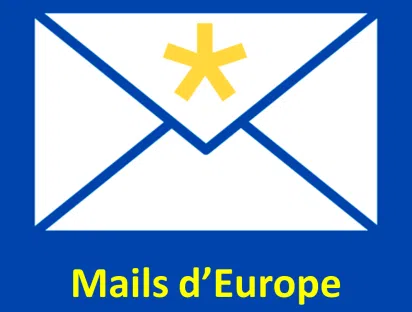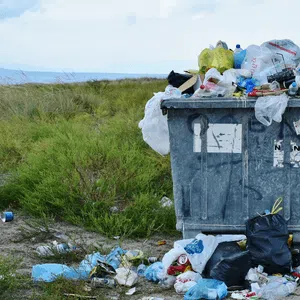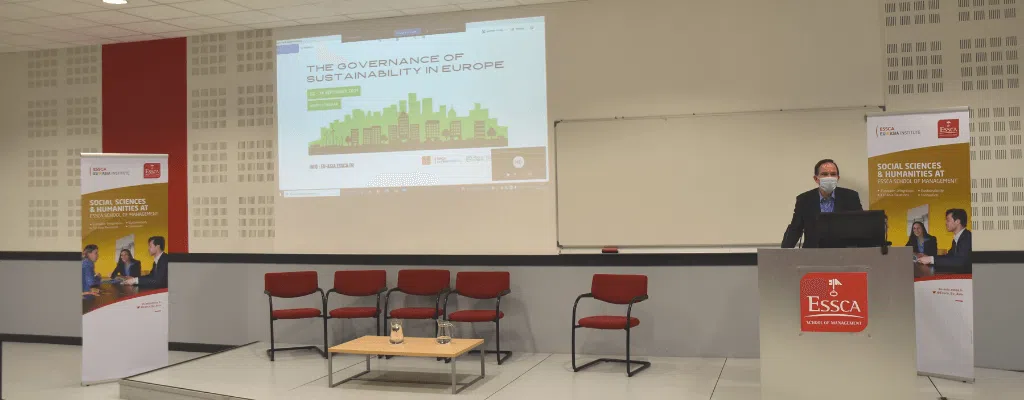
From the 22nd to the 24th of September 2021, the research network ‘Governance of Sustainability in Europe’ held its closing conference which focused on the dynamics of European integration in the areas of sustainability policy and resulting politics. The event took place both online and at the ESSCA campus in Angers and was open to the public. During the conference, attendees shared opinions, thoughts, and suggestions with the different participants.
The European Environmental Conscience in EU Politics – A Developing Ideology (Routledge) - a new book edited by Prof Thomas Hoerber and Dr Gabriel Weber
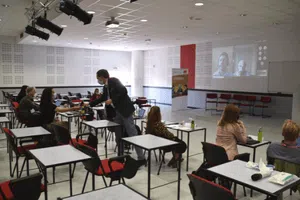
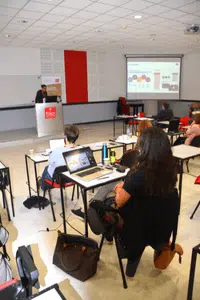
Making the European Green Deal Work: EU sustainability policies at home and abroad’ by Dr Kristina Kurze and Dr Helene Dyrhauge - to be published in 2022/23
The sixth session on Friday morning was dedicated to the presentation of the forthcoming book: ‘Making the European Green Deal Work: EU sustainability policies at home and abroad’ by Dr Kristina Kurze and Dr Helene Dyrhauge. They selected a rich selection of papers under the framework of the EGD, how the EU induces change, and which tools and logic induce that change. The book focuses on transformation processes within the EU and in countries such as Russia and the Middle East that haven’t yet been the subject of much research.
Closing remarks by Professor Thomas Hoerber and outlook for the future of this research network
In his concluding remarks, Pr Thomas Hoerber mentioned the wide interest for this conference with about 20 online and 20 on-site participants. During the conference, we heard 17 presentations, most of which will be published. But beyond numbers, the success of this conference is also related to the wide variety of topics that reached beyond the original remit of this research network, and therefore fulfilled its purpose to cover subjects that have not been researched before. Another qualitative point; out of this research network there will be several book publications; one at the end of 2021 (Gabriel Weber / Thomas Hoerber), one in 2022/23 (Kristina Kurze / Helene Dyrhauge), and a third book project is already underway with Christoph Weber and Marjorie Tendero who will take the lead on this project along with Thomas Hoerber (if you are interested in participating in this project, please contact one of the editors.) Finally, the question that remains is how will this research network, with about 30 to 40 researchers, live on? Pr Thomas Hoerber encouraged the participants to suggest further frameworks and ways of continuing the research carried out so far. This is only the first step in taking us further in our understanding of sustainable development and everything that goes with it in the widest possible sense.
Read more about the research network "Governance of Sustainability in Europe" | The programme of this event is available here.
The conference was preceded by a roundtable in French and open to the general public:
"Stakeholders, purpose and objectives of sustainable development in Europe"
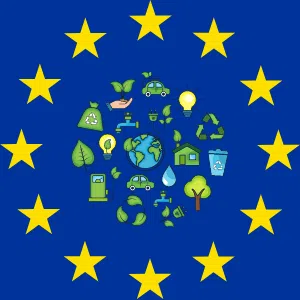
Click here to listen to the conference (in French).
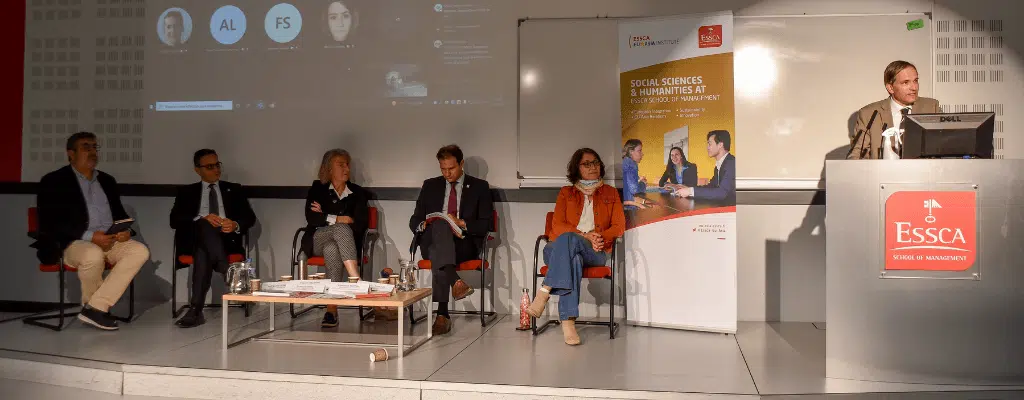
From left to right: Prof Michel CATALA (Alliance Europa, Nantes University), Francesco MATTINA (CPVO), Catherine CHABAUD (European Parliament), Noam LEANDRI (ADEME), Pascale BELDENT (ESSCA), Prof Thomas HOERBER (EU*Asia Institute/ESSCA)



